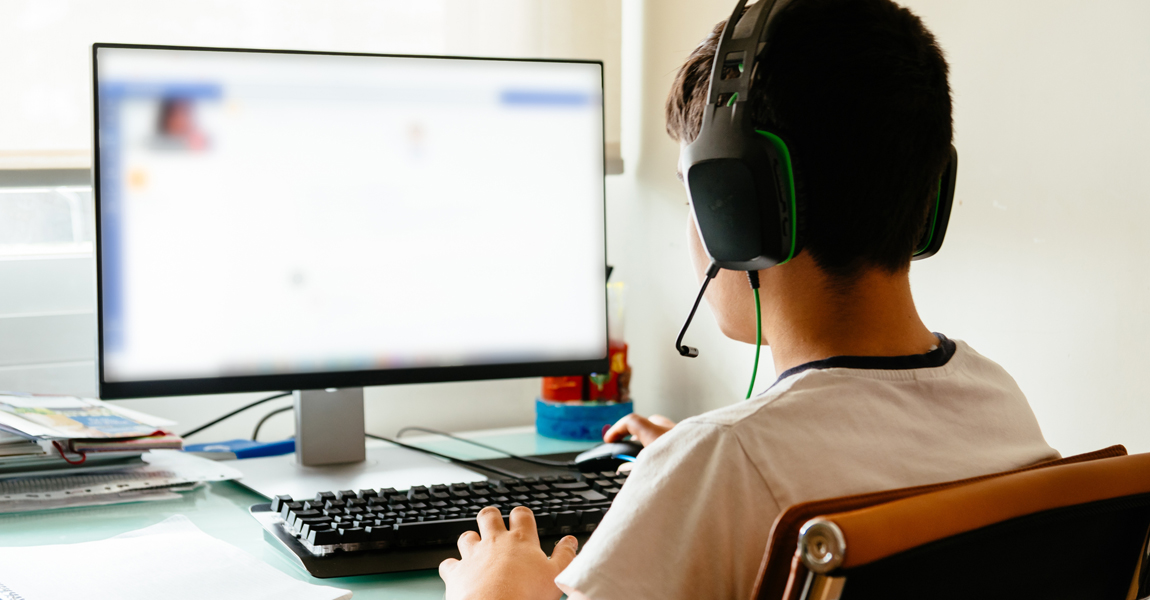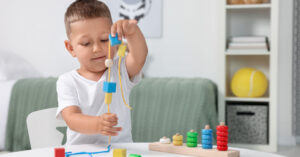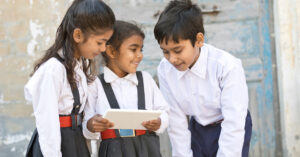How Montessori Education Promotes Independent Learning in Preschool Children

1. Understanding the Montessori Method
The Montessori method of education was developed by Dr. Maria Montessori, an Italian physician and educator. This educational philosophy focuses on self-directed learning, hands-on experiences, and collaborative play. Montessori classrooms, like those at International Montessori Academy, are specially designed environments that encourage independence, exploration, and growth.
Unlike traditional teaching methods, the Montessori method recognizes that children are naturally curious and capable of learning on their own. Teachers, or “guides,” facilitate rather than dictate learning, allowing preschool children to take ownership of their education.
2. The Role of the Prepared Environment
One of the core principles of Montessori education is the creation of a prepared environment. A Montessori classroom, such as those at International Preschool, is carefully organized and designed to support independent learning. The materials, furniture, and layout are all tailored to meet the developmental needs of preschool children.
- Child-Sized Furniture: Desks, chairs, and shelves are at the child’s level, encouraging accessibility.
- Order and Simplicity: Everything has a designated place, helping children develop organizational skills.
- Hands-On Materials: Montessori classrooms are equipped with materials that are engaging, self-correcting, and age-appropriate.
This environment fosters a sense of ownership and responsibility, motivating children to explore freely and learn independently.
3. Freedom Within Limits
Montessori education promotes a concept called freedom within limits. Preschool children are given the freedom to choose their activities and work at their own pace, but within a structured and well-defined set of guidelines. This balance between freedom and discipline teaches children to make choices while understanding boundaries.
For instance:
- A child may decide to work with puzzle blocks or color-coding materials, but they must return the materials to their proper place after use.
- They are free to explore subjects they find interesting, yet they are encouraged to respect the work and space of their peers.
This freedom fosters independence and helps children develop self-discipline.
4. The Role of Montessori Teachers as Guides
In a Montessori classroom, teachers are referred to as guides because their role differs significantly from that of traditional educators. Instead of lecturing or dictating, Montessori guides observe, support, and facilitate the learning process.
- Observation: Guides observe each child to understand their learning preferences, strengths, and areas of improvement.
- Encouragement: They encourage children to ask questions, solve problems, and explore ideas independently.
- Support Without Interference: Teachers allow children to learn through trial and error without immediately stepping in to help, fostering resilience and independence.
This approach builds a child’s self-confidence and enables them to trust their abilities.
5. Self-Correcting Montessori Materials
A key feature of Montessori education is the use of self-correcting materials that encourage independent learning. These materials are specifically designed to help children identify and correct their mistakes without adult intervention.
Examples of self-correcting materials include:
- Knobbed Cylinders: These help preschool children recognize size and spatial relationships.
- Color Tablets: These allow children to differentiate and match colors.
- Sandpaper Letters: These materials support early literacy and fine motor skills.
By working with these materials, children develop critical thinking skills, perseverance, and the ability to solve problems on their own.
6. Practical Life Activities: Building Real-World Skills
Montessori classrooms place a strong emphasis on practical life activities, which are designed to teach children real-world skills. These activities help preschool children become more independent and self-reliant.
Some examples of practical life activities include:
- Pouring and Transferring: Using tools to pour water or move objects, which enhances fine motor skills and concentration.
- Buttoning and Zipping: Learning to dress themselves, fostering autonomy.
- Cleaning and Organizing: Tidying their workspace, instilling responsibility and orderliness.
Through practical life activities, children learn to care for themselves, their environment, and others, building a foundation for independence and success.
7. Encouraging Choice and Autonomy
Choice and autonomy are at the heart of the Montessori philosophy. In a Montessori classroom, children are encouraged to make choices about their activities and learning materials.
For example:
- A child might choose to work on a math activity or explore nature-themed materials.
- They decide how long to spend on a task, allowing them to focus and develop a sense of ownership.
When children are given the opportunity to make decisions, they develop a strong sense of independence and confidence in their abilities.
8. Mixed-Age Classrooms: Learning From Peers
Montessori classrooms typically feature mixed-age groupings, where preschool children of different ages learn together. This setup promotes collaboration, mentoring, and independent learning.
- Younger children learn by observing and emulating older peers.
- Older children develop leadership skills by guiding and supporting younger classmates.
This dynamic environment fosters a sense of community, encourages peer-to-peer learning, and helps children build independence by learning from one another.
9. Focus on Intrinsic Motivation
Montessori education emphasizes intrinsic motivation, which means children are driven to learn because of their natural curiosity, not external rewards or pressures.
- Montessori activities are engaging and tailored to each child’s interests.
- Children experience satisfaction and pride when they complete tasks independently.
This approach nurtures a love for learning and helps children develop self-motivation and self-discipline.
10. Developing Problem-Solving and Critical Thinking Skills
Montessori education encourages preschool children to think critically, solve problems, and approach challenges with confidence. Through hands-on materials and activities, children learn to:
- Analyze problems and explore solutions.
- Develop reasoning skills and logical thinking.
- Persevere through challenges without relying on adult assistance.
This focus on problem-solving and independence equips children with skills that will benefit them throughout their academic and personal lives.
Conclusion
The Montessori method of education is a powerful tool for promoting independent learning in preschool children. By fostering a prepared environment, encouraging freedom within limits, and utilizing self-correcting materials, Montessori classrooms create a space where children can learn at their own pace. Practical life activities, peer collaboration, and intrinsic motivation further empower young learners to become confident, self-reliant individuals.




